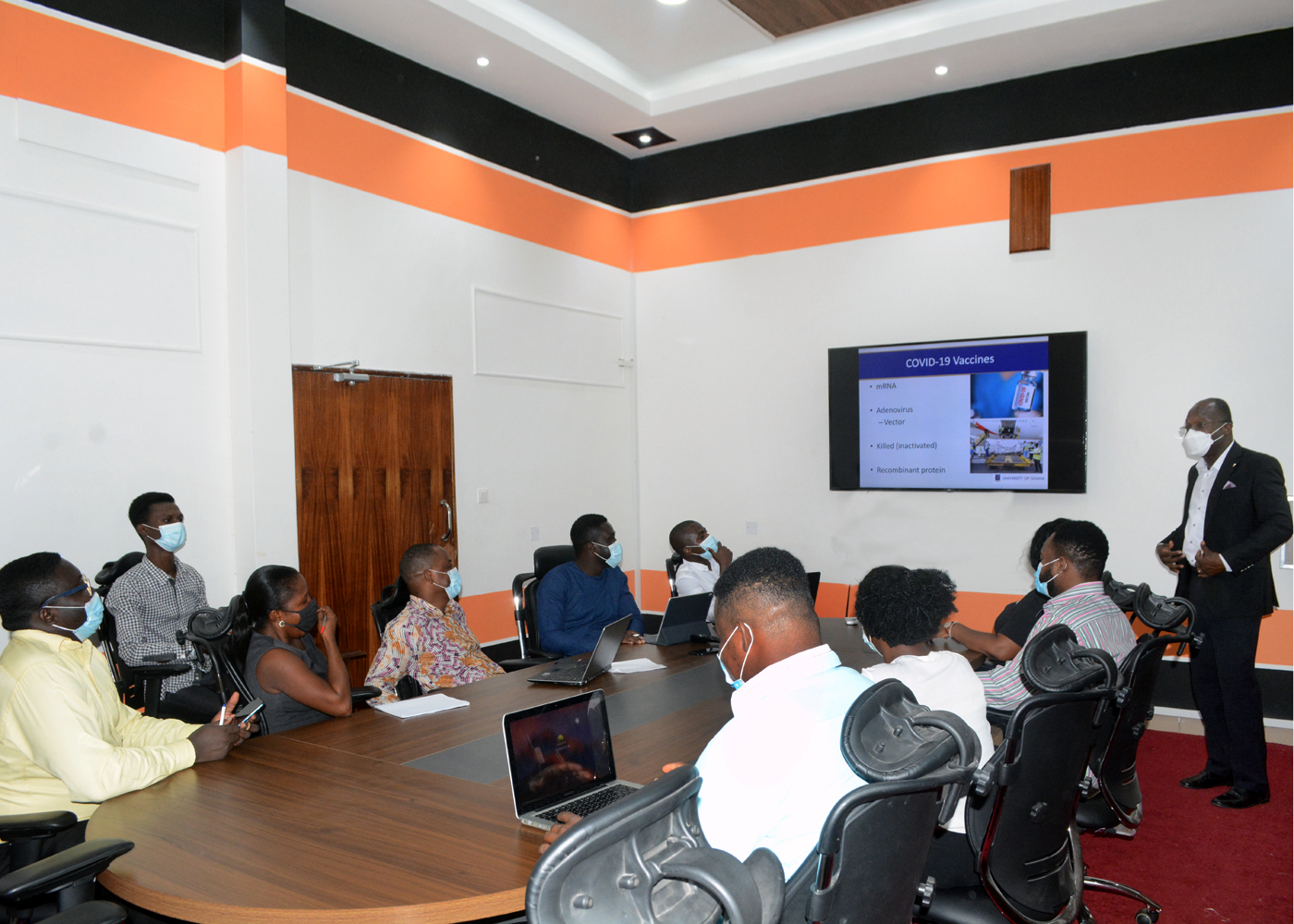A research team at the Department of Medical Microbiology, University of Ghana Medical School (UGMS), has successfully achieved its ambitious goal of authoring 100 full-length scientific articles in peer-reviewed journals over a 12-month period. The initiative, code-named “Operation 100x12”, was led by Professor Eric Sampane-Donkor, Head of Department, and aimed to foster a culture of scientific writing, mentorship, and publication excellence.
The core team included 3 national service personnel, 5 research assistants, 3 PhD students, and 2 postdoctoral fellows, all mentored intensively throughout the year. According to Professor Sampane-Donkor, the primary objective of the exercise was to equip early-career scientists with strong scientific writing skills, while also promoting ethical publishing practices by actively discouraging submissions to predatory journals.
To uphold the highest standards, the team resolved to publish only in journals indexed in both Scopus and PubMed, with a minimum impact factor (IF) of 2.0. The resulting articles span critical areas in infectious diseases, with a strong focus on global health, antimicrobial resistance (AMR), and food safety. Many of the publications are systematic reviews, synthesizing evidence from Ghana, the African region, low- and middle-income countries (LMICs), and globally, reflecting the team's commitment to producing high-impact research relevant to public health policy and decision-making.
The initiative spanned the period June 2024 to June 2025. In addition to the internally authored papers, the team also contributed to 3 more articles through external collaborations, bringing the total to 103 journal submissions within the year. At the time of reporting:
- 47 papers have been published or fully accepted
- 20 papers are accepted with minor or major revisions
- 36 papers remain under peer review
The published papers appeared in journals with impact factors ranging from 2.0 (BMC Medical Genomics) to 50.5 (Nature). Several of the team’s systematic reviews have gained international recognition. For example:
- A study on Shigellosis in Africa was featured by the University of Minnesota’s Center for Infectious Disease Research and Policy (CIDRAP)
- Another article on cancer and AMR was also covered by CIDRAP here
- A systematic review on antibiotic resistance in hospital wastewater in West Africa was highlighted by AMR Insights, an international advocacy institution.
Professor Sampane-Donkor employed a transactional leadership approach, actively guiding the ideation, writing, and revision process to ensure consistent progress and quality control. The team relied heavily on waivers of article processing charges (APCs) implemented by several journals. For instance, during the period of the exercise, Biomed Central (BMC), a recognized British publisher had opened an opportunity providing full waivers of APCs. Thus, 33 articles were submitted to various BMC journals: Microbiology, Infectious Diseases, Public Health, Neurology, Paediatrics, Cardiovascular Disorders, Antimicrobial Resistance and Infection Control, Medical Genomics, Annals of Clinical Microbiology and Antimicrobials. This saved the team over GBP 60,000 in APCs. Similarly, the team submitted 24 articles to various Elsevier and Sage journals based on the “Research for Life” policy implemented by these publishers, allowing authors from LMICs to publish at no cost.
“Operation 100x12” has had a tremendous impact on the mentees. For instance, Mr. Samuel Nee-Amugie Yartey, national service personnel, who took part in the exercise, described his experience as follows: “it is exciting for me that, 9 months into my national service, I have been able to author 9 papers, including 2 first author papers in reputable journals such as Nature Scientific Reports (IF-3.9), International Health (IF-2.2) and Therapeutic Advances in Infectious Diseases (IF-3.4). Abdul-Halim Osman, a research assistant, who had to leave the team to start PhD studies at the Michigan State University 4 months after commencement of the exercise, described his experience as follows: “I authored 3 systematic review papers in several excellent journals such as BMC Public Health (IF-4.0), and these were very helpful in my PhD admission”.
Overall, “Operation 100x12”, which was characterized by speed, quality and impact, stands as a groundbreaking mentorship model that could be replicated across departments, schools, and colleges within the University of Ghana to significantly boost scientific publication output and develop future leaders in academic publishing. Link to all the 103 papers: https://sites.google.com/view/publications100x12/home
